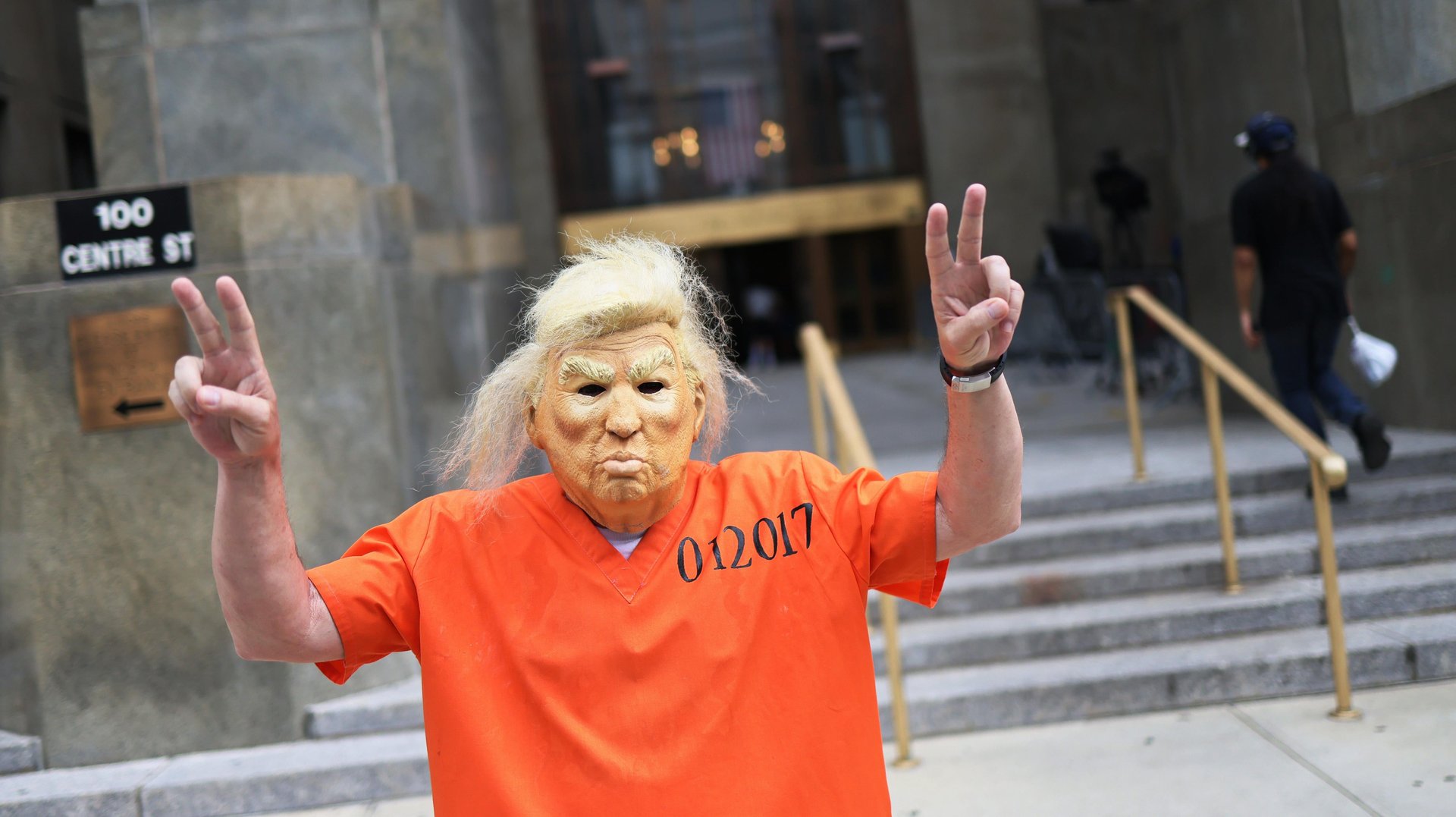One person is taking the fall for 15 years of tax evasion at The Trump Organization
Prosecutors suggest Donald Trump knew about the elaborate fraud but Trump Organization lawyers insist “Weisselberg did it for Weisselberg”

Two entities under The Trump Organization’s umbrella have been convicted of criminal tax fraud. It’s a first for Donald Trump’s company, set to tarnish the former president’s brand of successful businessman.
Suggested Reading
A New York State Supreme Court jury convicted the Trump Corporation and the Trump Payroll Corporation for “engaging in a 15-year scheme to defraud, as well as for conspiracy, criminal tax fraud and falsifying business records,” the Manhattan District Attorney’s office announced yesterday (Dec. 6).
The DA’s investigation revealed that several trusted executives and managers—chief financial officer Allen Weisselberg and his son, as well as chief operating officer Matthew Calamari, Sr. and his son—received substantial amounts of their compensation in the form of “off the books” personal expenses which the companies purposefully did not report in company tax reporting forms, so that those executives and managers could evade paying taxes on the income.
Lawyers for The Trump Organization pinned the blame solely on Weisselberg. In August, the CFO, who’s currently on leave, entered a guilty plea and accepted a deal that caps a prison sentence at five months in exchange for his testimony. The star witness will be sentenced separately.
The Trump Organization denounced the verdict, and said it plans to appeal. “Weisselberg testified under oath that he ‘betrayed’ the trust the company had placed in him. The notion that a company could be held responsible for an employee’s actions, to benefit themselves, on their own personal tax returns is simply preposterous,” the company told the New York Times in a statement.
The Trump Organization’s convictions, in the Manhattan district attorney’s words
This was a case about greed and cheating. In Manhattan, no corporation is above the law. For 15 years the Trump Corporation and the Trump Payroll Corporation got away with a scheme that awarded high-level executives with lavish perks and compensation while intentionally concealing the benefits from the taxing authorities to avoid paying taxes. —Manhattan District Attorney Alvin L. Bragg Jr.
Trump Organization’s convictions, by the digits
6 weeks: Duration of the trial
17: Criminal counts Trump’s organizations were found guilty on
10: Hours it took the jury to make a decision
$1.6 million: Fines the company faces. The sentencing date is set for Jan. 13. It’s a measly amount for a big company but could have far-reaching business consequences, including making it harder to get loans and make deals in the future
7: Witnesses who testified during the trial, including Weisselberg and senior vice-president and controller Jeffrey McConney, who oversaw all financial transactions and financial documents. McConney was indicted in 2021 and has been offering key testimony after striking an immunity deal. He’s the one that said the practice of treating executives like independent contractors at the organization dates back to the ‘80s. “Think of The Trump Organization as a small, one-teller bank,” Michael Cohen, Trump’s former personal lawyer and fixer, told The Daily Beast last year. “Donald [Trump] would be the president. Allen [Weisselberg] would be the branch manager. Jeff [McConney] would be the teller. Every single transaction was booked through McConney.”
$1.76 million: Unreported compensation received by Weisselberg, “a prime beneficiary” of the scheme, including payment of rent on a luxury apartment in Manhattan, utilities, parking garage expenses, Mercedes Benz cars for himself and his wife, home furnishings, cash for personal holiday tips and payment of his grandchildren’s private school tuition.
Person of interest: Donald Trump
The former president was not on trial, but prosecutors insisted he was fully aware of the scheme. In their closing statement, they said Trump “explicitly sanctioned tax fraud.” The Trump Organization lawyers disagreed, painting Weisselberg as an executive-gone-rogue. “Weisselberg did it for Weisselberg” became the lawyers’ mantra.
Trump, for his part, has dismissed the investigation as a politically-motivated “witch hunt” ahead of his 2024 presidential campaign—his third time vying for the presidency.
Rabbit hole: Trump’s other legal troubles
The brunt of this case fell on Weisselberg but Trump has several other investigations to worry about:
🏢 New York Attorney General Letitia James filed a $250 million civil lawsuit against Trump and his kids Eric, Ivanka and Donald Trump Jr., and the Trump Organization, alleging “staggering” fraud in the family real estate business, including inflating its net worth by billions to get better interest rates and insurance coverage. The case goes to trial in October 2023.
🗳️ Just yesterday (Dec. 6), the Department of Justice subpoenaed election officials in Wisconsin, Michigan, Arizona and Pennsylvania, asking for communications with or involving former President Donald Trump, his 2020 campaign aides, and a list of allies involved in his efforts. The federal agency is investigating Trump’s efforts to overturn the results of the 2020 election.
📝 The justice department is conducting a criminal investigation of Trump for retaining sensitive and classified government records when he was leaving office in 2021. During an August raid of Trump’s Mar-a-Lago Florida resort, officials uncovered more than 100 such documents.
🏛️ The US House Committee investigating the Jan. 6, 2021 attack on Capitol Hill, has said it’ll make criminal referrals to the justice department to prosecute individuals involved in perpetuating the riot. Whether or not Trump is named in the list of wrongdoers remains to be seen.
